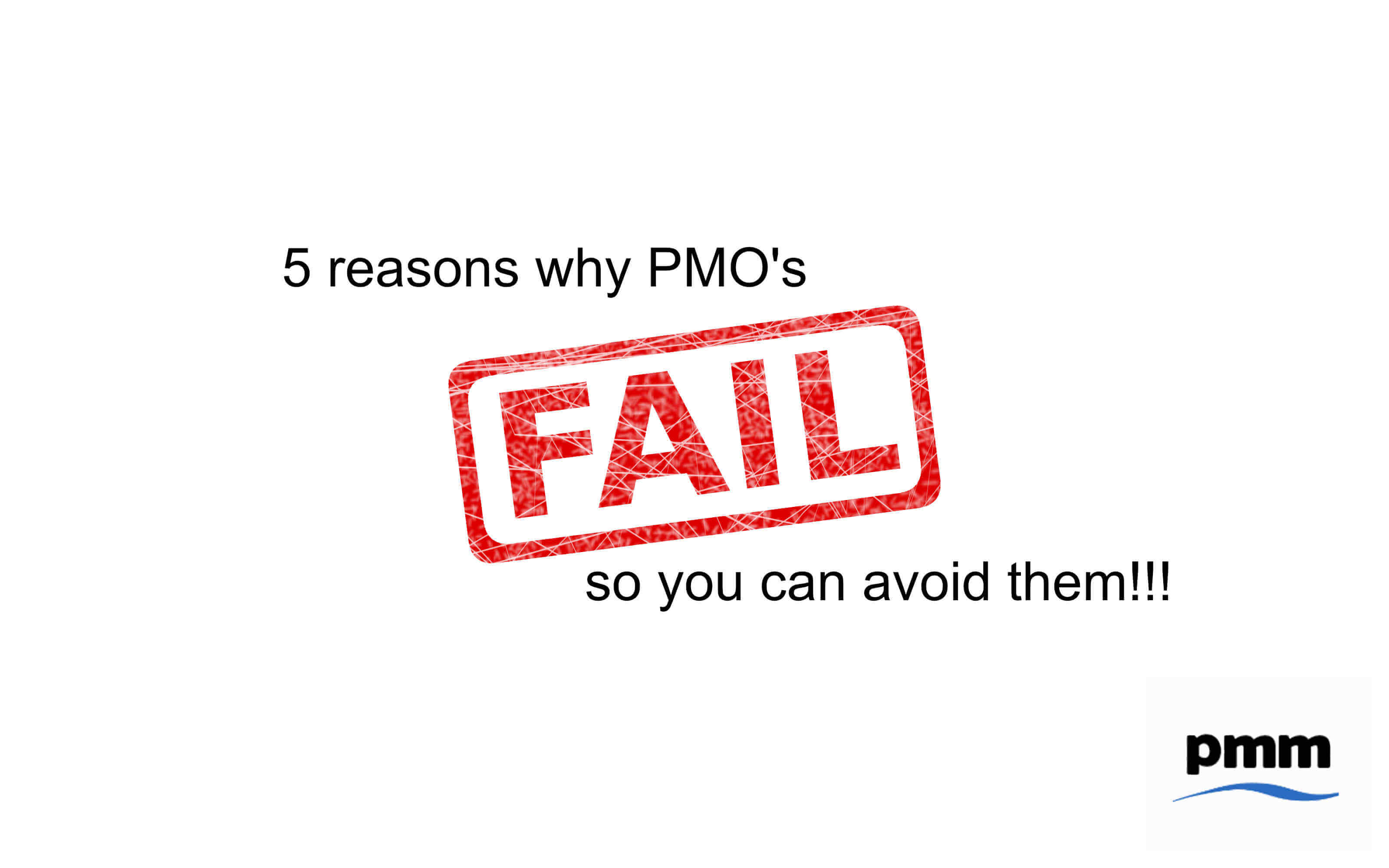Many organisations now run an annual change budget. This means that it is very common for the majority of change projects to mobilise in the first quarter (Q1) of the year. This in turn means that this is the time that many PMO’s that are dedicated to support the change activities are formed.
So if your manager has just tapped you on the shoulder and asked you to mobilise a PMO, you will want to know the common reasons for failure so that you can take the right steps make sure that you are successful.
Common reasons for PMO failure
1. Value perceived as offering little or no value
It is still very common for many people within an organisation (especially project managers and senior management) to view a PMO as little more than a low value, bureaucratic administrative function that is staffed with junior resources.
Due to this the PMO function is not respected and any attempts to request project information or implement standards are either ignored or the inputs from the projects is very poor and do not follow standards.
The unfortunate impact of this is that the quality of the reporting provided by the PMO is very poor that provides more support to the project managers and senior management that there is no value being provided (even though they are responsible for the poor quality).
The problem is then further compounded by:
2. Lack of senior sponsorship for the PMO
Hopefully a PMO should have a senior sponsor (if not you have real problems and the chances of success even further diminished). However, even if you have a sponsor, in many cases that do not understand the full benefits of a PMO and think that it is simply a means to achieve a consolidated report (a simple case of collecting all the inputs from the projects and placing them into a consolidated presentation).
This will typically result in a sponsor who sees little value in supporting the PMO to execute their duties. This is especially critical when you have the inevitable situation where the project managers complain to their own sponsors that the PMO is taking up their valuable time to complete pointless reports instead of important delivery work. Then, at the next senior management meeting, the sponsors will find way to attribute any delays on their projects to the fact that the PMO is impacting the projects with pointless requests.
A disengaged or reluctant PMO sponsor will not support the actions of the PMO. This will result in the position of the PMO being further weakened or even to be disbanded!
3. Lack of authority
This is very closely linked to point 2, lack of sponsorship.
If a PMO is not given the appropriate authority (mandate) by senior management, the project managers will interpret any request for information or to comply with standards as optional (at best). This will result in the PMO not being able to collect the required project inputs meaning they will not be able to provide consolidated reporting for senior management.
4. The PMO resources are inexperienced
This links very closely with point 1, perceived lack of value.
If senior management believe that all the PMO does is collect and consolidate information, it is all too common for this to result in the PMO being staffed by junior or inexperienced resources – why do you need experienced (expensive) resources to collect, copy and paste information into a spreadsheet or PowerPoint?
This results in a PMO that does not know what tools and process should be implemented, are unable to review and challenge inputs resulting in poor quality output that is not valued by senior management. This compounds the problem further why would you invest more funds for more experienced resources if the value provided is so low.
Inexperienced resources will also suffer at the hands of the project managers. With little or no project delivery experience, how can an inexperienced PMO resource have any chance of challenging the reports of experienced project managers?
 5. PMO operates as an audit function (project police)
5. PMO operates as an audit function (project police)
Project managers do not like people outside of their project reviewing their reports. This usually results in every problem being exposed resulting in extra attention from management. While it is important to have open and transparent reporting to avoid nasty shocks, it needs to be done the right way.
Unfortunately some PMO’s get into a mode of operation where they are looking to expose weaknesses and problems so as to expose the project manager. This behaviour makes the project manager reluctant to share any information other than the absolute minimum.
The net result is that the working relationship between the PMO and project managers breaks down resulting in only the minimum information being reported and the PMO not really understanding where the REAL problems are in the project.
It is worth remembering that the PMO is not an audit function, it should be working with and supporting the projects to help them deliver. The objective of the project managers and the PMO is the same – the successful delivery of the projects.
In summary
The above are some of the common reasons why a PMO will fail and it is important to understand them so you are well placed to avoid them.
Why a PMO can fail presentation






